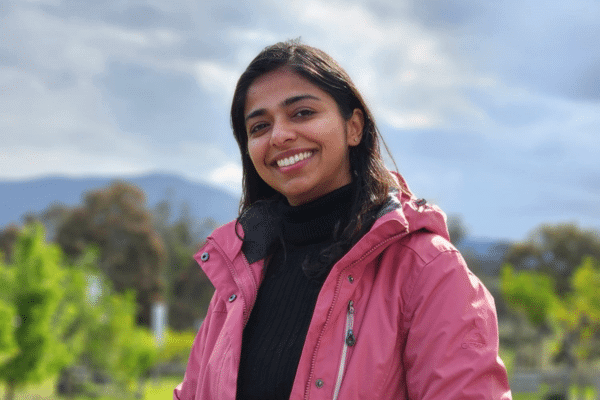What does a month in the life of someone suffering from a relapse of Acute Myeloid Leukaemia (AML) look like? For Archana Sukumar, it means working for two weeks, with the effects of chemotherapy having mostly worn off, only to undergo chemotherapy again and to experience the same gruelling side-effects. These include nausea, constipation and fatigue. But these descriptors alone fail to truly convey what it feels like to undergo chemotherapy.
“It’s hard to explain what you experience,” says Sukumar. “What I’ve listed are just the physical symptoms but it’s much more than that. It has a psychological impact as well.”
These symptoms are endured whilst she goes through the usual grind of a working mother and continues to look after her two young children, albeit, with the help of her loving friends and family. It is to these people that she owes her positive attitude during this particularly challenging time, having relapsed in May 2024, after experiencing less than a year in remission.

For those unfamiliar with AML, it’s a form of cancer that affects the bone marrow because of the overproduction of immature blood cells. This prevents the bone marrow from making healthy cells. As the illness spreads quickly, the main options are to undergo chemotherapy or to receive a stem cell transplant.
The only possible cure for those like Archana who have experienced a relapse, is to receive a transplant. But finding a matching donor takes a Herculean effort to say the least, especially because it requires finding people of the same ethnic background who are willing to donate. Unfortunately, within the South Asian community, there are shamefully few registrations.
What Archana Sukumar wants more than anything is for people to realise just how easy it is to give stem cells.

“Donating your stem cells is a similar process to giving blood. I feel like people are still under the impression that someone will take your marrow out and will torture you or something,” she laughs. “As a donor you won’t be suffering at all, it’s a very easy process.”
In fact, it’s something that everyone should register for, especially young people who are more likely to be matching donors. Registering to become a stem donor simply involves having the inside of your cheek swabbed. This is something that can even be done in the comfort of your home with a cheek swabbing kit.
Whilst the number of people who registered as blood stem cell donors has been steadily increasing and was over 43 000 in 2023 as recorded by Datri, which is India’s largest blood stem cell registry, more registrations are necessary for more patients to find a perfectly matching donor.
“There’s not that much awareness of the process of becoming a donor,” Archana explains. “Whilst there have been a few registrations in India, when you consider the population of India, I believe that the registration numbers should be higher.”
Faced with obstacles such as low registration numbers, it can be easy for anyone to feel disillusioned, but Archana steadfastly holds onto hope.

“Sometimes I just don’t think about what I’m going through. I just pretend that I have a cold, otherwise it’s hard,” she says. “One thing I’ve never asked is “why me?” I just accept that whatever happened, happened. I strongly believe that there will be a perfect donor for me.”
Her family and close friends have also been endlessly supportive, with her close-knit friend group offering to look after Archana’s daughters when needed and ceaselessly campaigning to increase registration numbers in both India and Australia. Now, it’s up to the community to hear the call and step up.
“Those who are found to be matching donors should be proud of being able to save a life,” Archana appeals.
By just attending a cheek swabbing event and putting your name in the hat to become a donor, you have the chance to save Archana Sukumar’s life.
READ MORE: Pink Sari Inc launches Cancer Info and Care program





